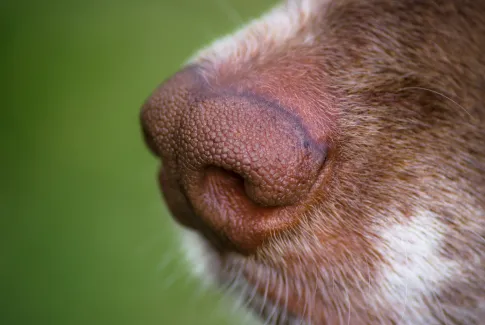
How to take care of your pet's skin in summer
Summer is the perfect time to enjoy the outdoors with your pet, but it can also bring certain risks to their skin. High temperatures, sun exposure, frequent baths, and insects can affect their dermatological health. In this article, we’ll share key tips to protect your furry friend’s skin during the hottest months of the year.
Why Pay Attention to Skin in Summer?
During summer, your pet’s skin is more exposed to external factors that can cause irritation, sunburn, dryness, or even infections. If you notice excessive scratching, redness, constant licking, or flaking, it’s time to take action.
Main Dermatological Risks in Summer
- Excessive sun exposure: Pets with light-colored fur or hairless areas are more vulnerable to sunburn.
- Frequent bathing: While refreshing, it can strip away the natural oils that protect the skin.
- Parasites: Fleas, ticks, and mosquitoes thrive in summer and can cause dermatitis or transmit diseases.
- Environmental allergies: Pollen, pool chlorine, or certain gardening products can trigger skin reactions.
- Beach baths: Saltwater can dry out the skin and cause irritation if not properly rinsed off afterward.
Warning Signs in Your Pet’s Skin
It’s important to watch for signs of skin and coat problems in your furry friend. Common symptoms include:
- Excessive itching and scratching: May indicate allergies, parasites, or infections.
- Hair loss: If you notice bald patches, consult your vet to determine the cause.
- Redness or inflammation: Could be signs of irritation or infection.
- Dry or flaky skin: May suggest dehydration or a nutritional issue.
If you observe any of these symptoms, it’s essential to consult a veterinarian for proper diagnosis and treatment.
Tips to Care for Your Pet’s Skin in Summer
- Sun protection
Use pet-safe sunscreens on sensitive areas like the nose, ears, or belly. Avoid walks during peak sun hours (between 12 PM and 5 PM). - Constant hydration
Make sure your pet always has access to fresh water. Well-hydrated skin is more resistant to external aggressors. - Bathing with appropriate products
Use gentle shampoos suited to your pet’s skin type. Avoid over-washing to preserve their skin’s natural barrier. - Post-beach care
After a swim in the sea, rinse your pet thoroughly with fresh water to remove salt and sand. This helps prevent irritation and maintains skin balance. - Parasite control
Apply antiparasitic treatments regularly and check their skin after walks, especially in grassy or wooded areas. - Balanced diet
A diet rich in essential fatty acids (like omega 3 and 6) helps keep the skin healthy from within. - Observation and prevention
Check your pet’s skin frequently and consult your vet if you notice any changes. Early detection is key to avoiding complications.
Recommended Products
In summer, products like Skinnia Calm can help soothe mild irritations, keep the skin hydrated, and strengthen its protective barrier.
Related news
- Care
The arrival of spring brings good weather, and you’ll likely take the opportunity to spend as…
- Care
The skin is the largest organ of the horse's body, measuring between five and ten square meters…
- Care
The snout — the visible, moist part of your dog’s nose — is not only key to their extraordinary…


